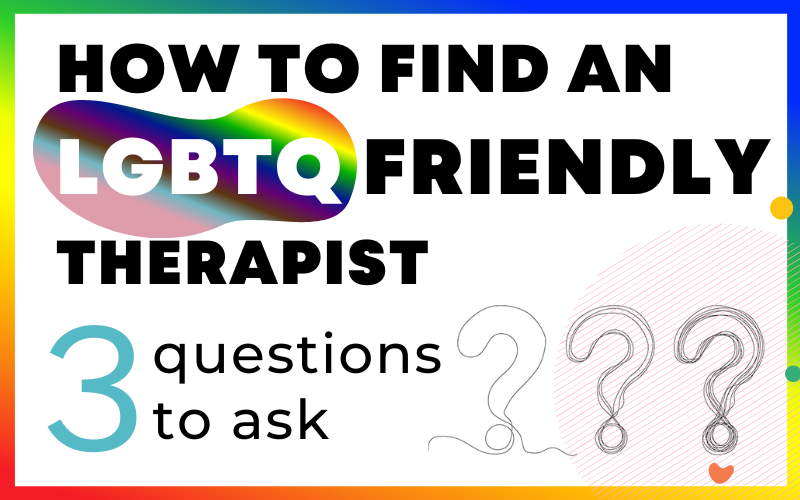Choosing a therapist can be a daunting task, especially if you're part of the LGBTQ+ community. LGBTQ+ students are more likely than their non-LGBTQ+ peers to experience poor mental health, according to Williams Institute and Point Foundation research. The problem is even worse for LGBTQ+ people of color, a quarter of whom report their mental health was not good all or most of the time they were in college
Professional clinical counselor Kerri Smith-Osei shares best practices for finding an LGBTQ+ friendly therapist.
Finding an LGBTQ-affirming therapist who is well-equipped to provide you with the support you need is essential to ensure a positive therapy experience. Kerri Smith-Osei, a trauma therapist and professional clinical counselor based in Los Angeles, shares her insights on how to choose an LGBTQ+ affirming therapist.
1. Look for Cultural Competence and Diversity Training
When searching for an LGBTQ+ affirming therapist, it's essential to consider their cultural competence and diversity training. Look for therapists who list "LGBTQ+ issues" as a specialty on their website or on directories such as Psychology Today. You can also ask the therapist directly if they have experience working with LGBTQ+ clients.
2. Trauma Awareness and Trauma-Informed Therapy
It's important to seek a therapist who is trauma-aware and trauma-informed. This means that they understand the impact of trauma and can provide a safe and supportive environment for you to process your experiences. Look for therapists who mention their trauma training or experience working with clients who have experienced trauma.
3. Experience with the LGBTQ+ Community
Find someone who has lived experience, not performative experience, working directly with the LGBTQ+ community. This means that they have a genuine understanding of the struggles faced by the LGBTQ+ community and can provide you with the support and resources you need.
Once you have identified potential therapists, it's important to ask them direct questions related to the three criteria mentioned above. Be clear and upfront in your questioning. For example, you can send this email to a potential therapist:
I am looking for a therapist that is culturally competent and well-trained in working with diverse clients, one who is also trauma-aware or trauma-informed, and someone who has lived experience working directly with the LGBTQ+ community. Do you fit that criterion?
If the therapist meets all three criteria, the next step is to request a consultation.
The Vibe Check
“Therapy is about creating a relationship where you feel safe, safe enough to bear it all,” says Smith-Osei, “I call my consultations a vibe check.”
During the consultation, you can get a better idea of how you feel about the therapist and whether you are a good fit. Prepare a list of questions tailored to your personal preferences and presenting problems.
Some examples of questions you can ask include:
1. What percentage of clients identify as LGBTQ+ in your practice?
2. Do you have an understanding and empathy towards the struggles faced by the LGBTQ+ community in today's political climate?
3. What approach do you take when working with LGBTQ+ clients?
4. Would you be comfortable and do you feel competent working with individuals who identify as fill-in-the-blank?
It's essential to make a list of anything that feels important to you and that might make you feel emotionally safe.
Advocating for your mental health is an act of self-love and self-care, and it's worth taking the time to find the right therapist for you. Don't give up, your mental health is priceless.

